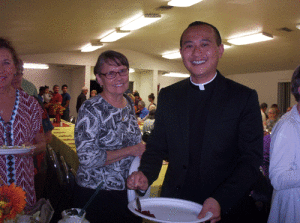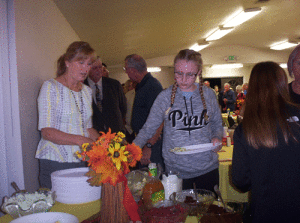
I know, I know, it is the season to be thankful. It is a holiday, a movement, a spiritual truth, even a buzzword. More importantly, being thankful may be the best selfish habit you could ever develop. Yes, selfish, self-serving, benefiting you, your children and your family. How you might say? Well, research supports the fact that being grateful, expressing appreciation, practicing gratitude has many benefits. 2012 research from University of Pennsylvania strongly suggests that people who practice ‘an attitude of gratitude’ are healthier, less likely to suffer depression, less susceptible to contagious infections and more likely to be motivated to manage their health. Crazy , huh? That’s not all. Researchers at Clinical Research of Florida reported in 2010 that being thankful out loud, even for little things increases brain activity, raises immunity, decreases blood pressure and builds relationships. Of course that means you have to open your mouth and actually thank someone for the lunch they bring you or the check that gets cashed, or whatever small services they might perform for you. AARP suggests that language of gratefulness is something that must be developed, but that use of positive words that focus on good things done for and around you bring more good, more fortune and more blessing to you.
My Daddy used to say ‘you catch more flies with honey than you do vinegar.’ Well, apparently, you catch more good with gratefulness than you do griping and complaining. Psychcentral, the educational branch of World of Psychology Magazine says that gratitude is the parent of all virtues. In other words, learning to be thankful helps you learn to be patient, kind, self-controlled, etc. They state that maturity and wisdom grow with growing virtue. Want to be wise and mature and have others see you as virtuous? Be grateful; thank those who do for and with you.
The University of Oklahoma research team says that thankful people are inherently happier. They are less critical of themselves and those they love, less likely to use ‘bashing’ language, more likely to have a ‘glass half full’ outlook rather than a pessimistic one. University of California Davis researchers state that being grateful takes practice and discipline. They found that being grateful combats fear, anxiety and worry. One researcher said it is ‘impossible to be truly thankful and fearful at the same time.’
So, enjoy your turkey, devour your dressing and gobble your pie; but take time to be thankful. Express gratitude to God, to family and to friends, to strangers who serve you and servants who bless you. Practice the discipline of thankfulness in new ways. Open your mouth and build that thoughtful vocabulary of thankfulness. Write a note to someone who went the extra mile for you and yours. Give thought to the past blessings and boons that have come your way. Build a memory bank of things to be thankful for on those days when it seems nothing is as you wish. You will be a healthy, happy thanksgiver in no time at all if you try. Your head, your heart, your health and your home will thank you for developing the demonstrated out loud habit of thankfulness. Blessings and Happy Thanksgiving!


Enoying the fellowship meal – 21st Annual Port O’Connor Community Thanksgiving Service…
